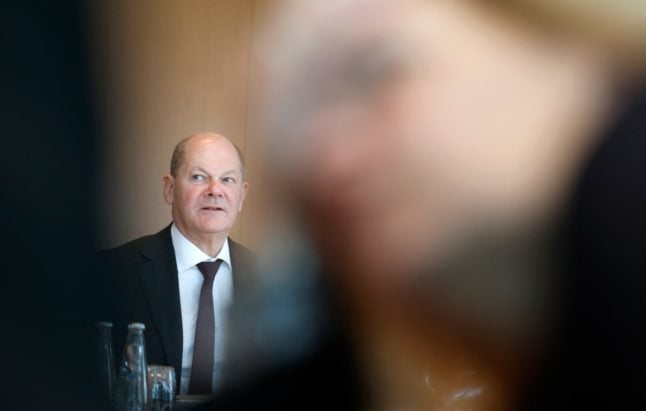The centre-left SPD, Greens and liberal FDP, which presented their plans for Germany’s next ruling coalition on Wednesday, have agreed to ease rules on personal use of cannabis.
“We will introduce the controlled distribution of cannabis to adults for consumption purposes in licensed stores,” the parties said in their coalition contract.
“This will control the quality, prevent the circulation of contaminated substances and ensure the protection of minors,” the document says.
Current German law allows cannabis plants to be grown, sold, owned, imported or exported, and people with certain medical conditions can be prescribed cannabis-based drugs.
Private recreational use of the drug is banned — though police often turn a blind eye to possession of small amounts.
The Greens and FDP have long been pushing to legalise cannabis, while the SPD has proposed testing regulated distribution of the drug in pilot projects.
‘Positive effects’
It is not yet clear whether cannabis in Germany would be sold in tobacco shops, Amsterdam-style “coffee shops” or pharmacies, but the aim is to make it easier to control who can buy it — and what they are getting.
According to the German Cannabis Association, substances that can end up in black-market weed include sand, hairspray, talcum powder, spices or even glass and lead.
Experts also say marijuana can be contaminated with heroin or synthetic cannabinoids, up to 100 times stronger than natural psychoactive cannabinoids.
Legalising the drug could generate around 4.7 billion euros ($5.3 billion) a year in public finances, according to a recent study by the Heinrich-Heine University in Duesseldorf.
The study also predicts that legalising cannabis would create around 27,000 jobs.
The prohibition of cannabis costs the taxpayer billions every year in “senseless prosecutions”, according to Georg Wurth, director of the German Cannabis Association.
Wurth also asserted that the ban “promotes organised crime by giving it exclusive access to a market worth billions.”
He argued that legalisation would “have multiple positive effects for users, but also for society as a whole.”
Health risks?
At the Mary Jane Berlin cannabis expo in October, visitor Linda Moedebeck told AFP she was in favour of legalisation because it would help control the quality of the drug.
“With illegally bought substances, you never really know what’s inside and I just find that very dangerous,” she said.
“Everybody smokes who wants to smoke anyway, so I don’t think consumption would go up as a result,” said another visitor, Sven Baum.
Wurth had the same opinion, saying legalisation is unlikely to worsen health problems associated with the drug. “Since a significant increase in consumption is not to be expected, (an) increase in the various problems caused by consumption is not to be expected either,” he said.
But not everyone is in favour of the plan, with Angela Merkel’s CDU-CSU conservative alliance warning that regular use of the drug can pose health risks for some people.
Stephan Pilsinger, the CDU’s pointman on drug policy, accused the coalition parties of performing an “experiment on the health of our society and our young people”.
“Should the state really earn money by plunging its citizens into the danger of addiction, permanent psychoses and physical and mental suffering? I think that is immoral,” he told AFP.
Some experts have warned that cannabis use among young people can affect the development of the central nervous system, leading to an increased risk of developing psychosis and schizophrenia.
Sustained use has also been linked to respiratory diseases and testicular cancer.
Daniela Ludwig, drugs commissioner for the outgoing government, has accused the coalition parties of risking “the health of the population for the sake of a supposed Zeitgeist”.
The legalisation of cannabis would “trivialise the dangerous nature of this drug”, she told the Rheinische Post newspaper.



 Please whitelist us to continue reading.
Please whitelist us to continue reading.
“Should the state really earn money by plunging its citizens into the danger of addiction, permanent psychoses and physical and mental suffering? I think that is immoral,” he told AFP.
You mean like… alcohol and tobacco products? Oh dear
Or sell a product that increases the likelihood of death from COVID19… oh dear .